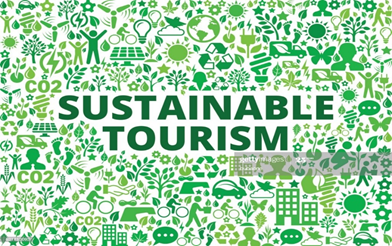According to UNWTO, three key elements play a vital role in the tourism industry, which are environmental resources, socio-cultural authenticity, long term economic operations (UNWTO, 2020). In an economic resource, to make optimal use of environmental resources that constitute a key element in tourism development, maintaining essential ecological processes, and helping to conserve natural heritage and biodiversity. From the Socio-cultural element, to respect the socio-cultural authenticity of

host communities, preserve their living and built cultural heritage and traditional values, and contribute to intercultural understanding and tolerance. From the economic perspective, to ensure sustainable long-term economic performance and contribute to poverty alleviation, providing social and economic benefits to all stakeholders, including stable employment and income-generating opportunities and social services for host communities (UNWTO, 2020).
From my perspective, every tourism business has the main goal to earn a profit. But focus on how to sustain their growth in a competitive market with the help of sustainable goals. In a sustainable goal, every business must focus on sustaining an environment, economic, socio-cultural factors. On the other side, If the tourism business can not obtain revenue, their financial goals can not achieve.

A sustainable tourism business model plays a crucial role to earn profit as same as to sustain key elements i.e. economic, environment, socio-cultural. For example, Whale Watch is committed to providing a quality whale watching experience while using rare natural resources carefully. Nagi Tahu has built a lasting relationship with the entire ecosystem of Kaikoura, including the marine ecosystem that preserves whales in their natural environment. Also, Whale Watch Kaikoura is following the Tiaki Promise. Tiaki means to care for people and place. A promise means a commitment to care for New Zealand, for now, and for future generations (Conservation Policy/Tiaki Promise, n.d.). Secondly, Aroha New Zealand tour provides wildlife tours and shares knowledge about the ecotourism to tourists. They are delivering bird watching, whale watching, marine mammals, hiking, alpine flora, and fauna So this company has committed to sustainable tourism practices that help to sustain the physical environment, socio-cultural environment, and natural environment. As a result of that, sustainable tourism practices are important in the tourism industry (New Zealand Sustainable Tourism And Eco Travel, n.d.).
References
Conservation Policy/Tiaki Promise. (n.d.). Whale Watch Kiakoura. http://www.whalewatch.co.nz/our-place/conservation-policy/
New Zealand Sustainable Tourism And Eco Travel. (n.d.). Aroha luxury new zealand tours. https://www.arohatours.co.nz/aroha/activities/sustainable-tourism-and-eco-travel/
UNWTO. (2020). UNWTO. https://www.unwto.org/sustainable-development
